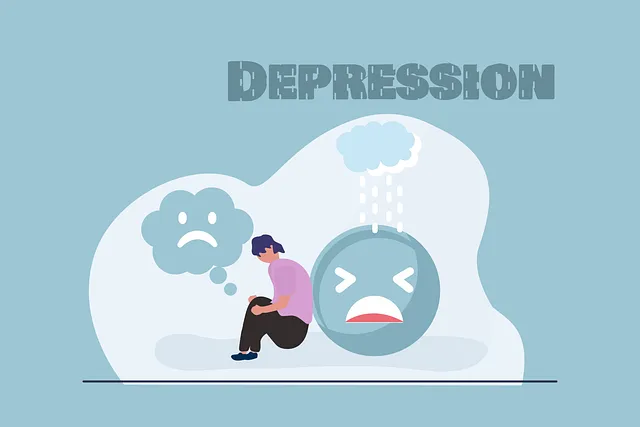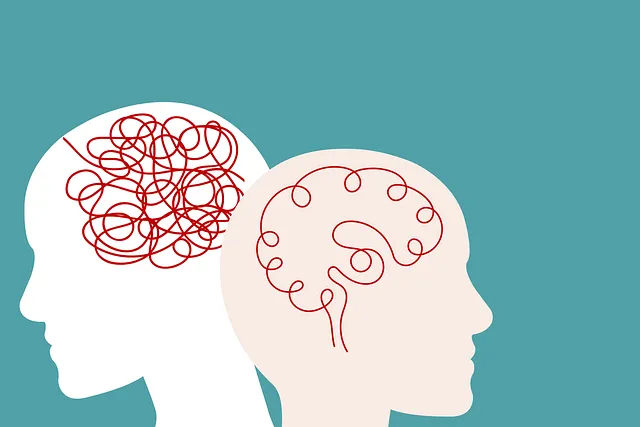Kaiser Permanente Norcal prioritizes harm minimization through comprehensive risk assessment, integrating self-care routines, and mental wellness coaching. Their 24/7 Kaiser Permanente mental health phone number in Golden offers immediate support for crises, focusing on stress management, anxiety relief, and depression guidance. They target vulnerable populations like youth, seniors, and the homeless through tailored Mental Health Education Programs. Best practices include integrating coping skills development into care plans and cultural competency training for healthcare providers. Resources like this Kaiser Permanente mental health phone number serve as vital touchpoints for guidance in Northern California.
In today’s complex social landscape, effective risk assessment and harm minimization are paramount. This comprehensive guide delves into these critical components of community safety, especially focusing on vulnerable populations. We explore strategies and best practices to identify risks in community settings, utilizing resources like the Kaiser Permanente Mental Health Phone Number Norcal for support. By understanding risk assessment thoroughly, we can implement robust harm minimization plans, ensuring a safer environment for all.
- Understanding Risk Assessment: A Comprehensive Guide
- Harm Minimization Planning: Strategies and Implementation
- The Kaiser Permanente Mental Health Phone Number Norcal: A Resource for Support
- Identifying Risks and Vulnerable Populations in Community Settings
- Best Practices for Effective Risk Assessment and Mitigation
Understanding Risk Assessment: A Comprehensive Guide

Understanding Risk Assessment is a vital step in any harm minimization planning process, especially within mental health services like those offered by Kaiser Permanente Norcal. It involves a comprehensive evaluation of potential risks and their likelihood of causing harm to individuals or communities. This methodical approach ensures that resources are allocated effectively to address the most significant concerns.
The process begins with identifying hazards present in various settings, including healthcare facilities, communities, and online platforms. For instance, mental health organizations like Kaiser Permanente Norcal can utilize risk assessment tools to evaluate the potential for self-harm or harm to others among their patients. This could include factors such as previous attempts, access to means, and the presence of a crisis intervention plan. Furthermore, integrating Self-Care Routine Development for Better Mental Health and Mental Wellness Coaching Programs can enhance prevention strategies while offering support tailored to individual needs, thereby reducing risks and promoting positive mental wellness outcomes.
Harm Minimization Planning: Strategies and Implementation

Harm Minimization Planning involves strategic interventions aimed at reducing risks and mitigating potential harms associated with various issues, including mental health concerns. Kaiser Permanente Norcal, recognizing the importance of early intervention and prevention, has implemented innovative programs to address this. One notable strategy is the integration of Mindfulness Meditation techniques into their mental health support services, offering clients tools to manage stress and promote well-being. This approach aligns with the broader goal of Mental Illness Stigma Reduction Efforts, fostering a more supportive environment for those seeking help.
Additionally, Golden opportunities lie in Public Awareness Campaigns Development, leveraging educational initiatives to dispel myths and misconceptions about mental health. By engaging the community through these campaigns, Kaiser Permanente Norcal can foster an atmosphere of understanding and empathy, encouraging early identification and support for individuals facing mental health challenges. Such proactive measures not only minimize harm but also empower communities to actively contribute to a healthier, more resilient society.
The Kaiser Permanente Mental Health Phone Number Norcal: A Resource for Support

In moments of crisis or when mental health support is needed urgently, the Kaiser Permanente Mental Health Phone Number Norcal stands as a beacon of hope and assistance. This dedicated line offers immediate access to professional counselors and psychiatrists who are equipped to handle various mental health concerns, from stress management and anxiety to more severe conditions like depression. The service is designed to foster positive thinking and provide a safe space for individuals to discuss their feelings and seek guidance.
Available 24/7, the Kaiser Permanente Mental Health Phone Number Norcal plays a pivotal role in public awareness campaigns focused on depression prevention. By reaching out to this number, folks can connect with specialists who promote healthy coping mechanisms and offer valuable resources tailored to their unique needs. This proactive approach ensures that individuals across Golden and beyond have easy access to vital support, fostering a culture of mental well-being.
Identifying Risks and Vulnerable Populations in Community Settings

In community settings, identifying risks and vulnerable populations is a critical component of effective mental health support strategies. Kaiser Permanente’s mental health phone number Norcal Golden serves as a crucial resource for residents across Northern California, offering access to professionals who can assess and mitigate various risks. This process involves understanding the unique challenges faced by different demographics, such as youth, seniors, and those experiencing homelessness, each presenting distinct vulnerabilities. By implementing Mental Health Education Programs Design tailored to these groups, communities can foster emotional intelligence and resilience, empowering individuals to navigate potential hazards.
Risk management planning for mental health professionals in these settings requires a comprehensive approach. It includes identifying environmental factors, social determinants of health, and individual-level risks. For instance, areas with limited access to quality education or high poverty rates often contribute to elevated stress levels and mental health disparities. Professionals can then collaborate with local organizations and policymakers to develop strategies that address these root causes, ensuring a more holistic approach to harm minimization planning within the community.
Best Practices for Effective Risk Assessment and Mitigation

When conducting risk assessments for mental health issues, it’s essential to adopt best practices that ensure comprehensive and effective mitigation strategies. One key approach is integrating coping skills development into care plans. By equipping individuals with tools to manage their mental wellness, such as stress reduction techniques or crisis intervention training, we empower them to navigate challenges proactively. This not only minimizes risks but also promotes long-term resilience.
Additionally, healthcare providers in the Norcal region, including those at Kaiser Permanente, can enhance their effectiveness through cultural competency training. Understanding and addressing cultural nuances related to mental health is crucial for building trust and ensuring equitable access to care. This training enables providers to offer tailored support, recognizing that mental wellness is influenced by a web of personal, social, and cultural factors. By adopting these practices, we strive to create a supportive environment where individuals can prioritize their mental health, with resources like the Kaiser Permanente mental health phone number serving as vital touchpoints for guidance and support.
In conclusion, risk assessment and harm minimization planning are vital components of comprehensive mental health support. By understanding risk factors and implementing effective strategies, such as leveraging resources like the Kaiser Permanente Mental Health Phone Number NorCal, communities can better identify and assist vulnerable populations. Adhering to best practices ensures that interventions are both efficient and ethical, fostering a safer and more supportive environment for everyone in Golden.






